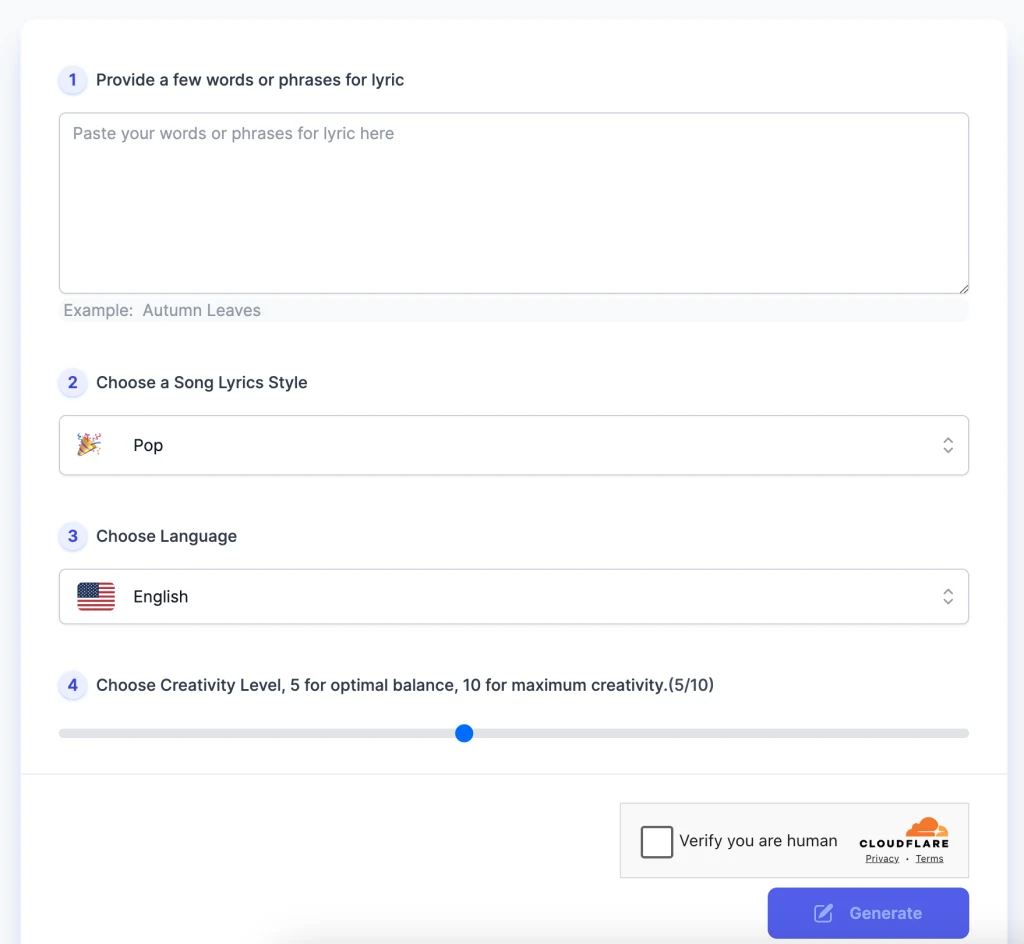Unlock Insights: Find the Answers You Seek on Our Blog
Clementine The Song Lyrics: An In-Depth Analysis of Their Emotional Journey and Meaning
By Evelyn Sterling
“Clementine” is a song that resonates deeply with audiences, known for its evocative lyrics and haunting melody. Despite sharing a name with the classic American folk tune, various artists have reinterpreted “Clementine,” infusing it with distinct emotional nuances and perspectives.
The song’s exploration of loss, memory, and longing strikes a chord with listeners, showcasing the power of lyrics to convey profound messages and connect emotionally with the audience. In this blog post, we will dissect the narrative and emotional intricacies of “Clementine,” examining why and how it continues to touch the hearts of many.
Background of ‘Clementine’ the Song Lyrics
The Historical Roots of ‘Clementine’
“Clementine” as a folk ballad traces its roots back to the 19th century, closely tied to the American West and the California Gold Rush. This period’s song portrays the life and tragic loss of a miner’s daughter named Clementine, embodying the hardships and transient nature of Gold Rush society. The origins of this ballad are somewhat ambiguous, contributing to its mystique and enduring appeal as a traditional folk narrative.
Modern Interpretations of ‘Clementine’
In contrast to the traditional ballad, contemporary artists have reimagined “Clementine” in various musical genres, infusing it with personal meaning and modern-day relevance. For example, musicians like Sarah Jaffe and Halsey have each crafted their versions of “Clementine,” which diverge in theme and inspiration from the folk original. These modern adaptations often explore complex emotional and psychological landscapes, demonstrating the song’s versatility and its ability to resonate across different eras and audiences.
Songwriter’s Intent and Narrative Depth
The intent behind each version of “Clementine” reflects the songwriter’s unique perspective and the cultural context of their time. While the traditional folk ballad may serve as a lament or darkly humorous anecdote from the Gold Rush era, contemporary versions tend to use the name “Clementine” to delve into more personal and introspective themes. Understanding the songwriter’s intentions and the narrative nuances of each “Clementine” version enriches the listener’s experience, highlighting the song’s capacity to convey a range of emotions and stories that transcend time and place.

Clementine the Song Lyrics Analysis
Traditional Folk Ballad Version
Verse by Verse Breakdown
- The traditional “Clementine” opens with a verse that sets the scene in the 1849 California Gold Rush, describing Clementine as the miner’s daughter with a tragic fate.
- Subsequent verses detail her accidental death, her father’s grief, and the narrator’s remorse, creating a narrative of loss and lament.
Key Themes and Motifs
- Loss and memory are central, with the recurring refrain mourning Clementine’s untimely death.
- The harsh realities of pioneer life are reflected in the stark, unforgiving landscape and living conditions depicted in the lyrics.
Literary Devices
- Imagery: Vivid descriptions of the setting, like “dreadful sorry, Clementine” and “ruby lips above the water,” paint a clear picture of the scenes.
- Metaphor: Clementine is often described in terms of natural beauty, symbolizing innocence and the fragility of life.
Modern Interpretation
Verse by Verse Breakdown
- Modern versions, such as by Halsey, often reinterpret Clementine as a complex character exploring themes of identity, self-reflection, and emotional turmoil.
- Each verse can dive into different aspects of the protagonist’s psyche, challenging the listener to understand deeper emotional narratives.
Key Themes and Motifs
- Themes of self-discovery, emotional resilience, and personal struggle are common, presenting a more introspective version of Clementine.
- The motif of water, often used in the traditional version to signify danger and death, can symbolize renewal and self-purification in modern interpretations.
Literary Devices
- Imagery: Modern renditions use vivid imagery to convey complex emotions, like “a million little pieces” to reflect internal fragmentation.
- Symbolism: Elements like water or light often symbolize different states of mind or phases in personal growth.
In both traditional and modern versions, “Clementine” is rich in narrative depth and literary quality, offering multiple layers of meaning to explore.
Contextual Usage of ‘Clementine’ Song Lyrics
Situations or Moods Where “Clementine” Would Be Particularly Resonant
The traditional folk ballad “Clementine,” with its somber narrative and melancholic melody, often resonates in moments of reflection or remembrance. It can be particularly impactful during times of loss or mourning, providing a sonic expression of grief and the pain of absence. Its timeless quality allows it to be a poignant backdrop during communal gatherings that recall historical events or collective memories, such as folk festivals or remembrance ceremonies.
Modern versions of “Clementine,” such as Halsey’s, tap into different emotional registers and can be reflective of personal introspection, self-discovery, and the challenges of mental health. These renditions are likely to strike a chord in moments of solitude, during periods of personal transformation, or when one is grappling with identity and emotional authenticity. The song can serve as a companion during late-night introspection or in therapeutic settings where individuals are encouraged to explore their inner emotional landscape.
How the Song’s Themes Relate to Universal Experiences
At its core, “Clementine” in both its traditional and modern forms, encapsulates themes that are universally relatable. The traditional version speaks to the universal experiences of loss and the inevitability of change, themes that every listener can relate to at some point in their lives. Its narrative, steeped in historical context, also provides a window into shared histories and collective memories, bridging personal and communal experiences.
In contemporary interpretations, “Clementine” explores the intricacies of personal identity, emotional struggle, and the quest for understanding oneself, which are fundamental aspects of the human condition. These themes resonate broadly because they reflect the journey of self-exploration and the complexities of the human psyche that many people navigate in their lives.
In summary, “Clementine” finds its resonance in a wide array of situations and moods, its themes echoing the multifaceted nature of human experience. Whether through the lens of history and collective memory in the traditional ballad or the intimate exploration of self and emotional authenticity in modern versions, “Clementine” serves as a powerful narrative tool that connects deeply with listeners, inviting them to reflect on their own experiences and emotions.
Writing Similar Lyrics
Capturing Emotions and Themes in Songwriting
- Leverage AI Lyric Generator: To inspire creativity and generate unique lyrical ideas, consider using an AI lyric generator. This AI tool can provide a starting point or spark inspiration for personalized lyrics, especially when you’re facing writer’s block.

- Explore Deep Emotions: Focus on deep-seated emotions to evoke a response similar to “Clementine.” Explore the complexities of these feelings in your lyrics, capturing both the surface emotion and its underlying nuances.
- Theme Consistency: Your lyrics should maintain thematic consistency, with each verse contributing to the overall theme, building a coherent emotional and narrative arc.
- Create Contrast: Using contrast in your lyrics, like juxtaposing happiness and sadness or hope and despair, can add depth to the emotional landscape of the song, making it more dynamic and engaging.
Using Personal Experiences as Inspiration
- Draw from Your Life: Your own experiences are a rich source of inspiration. Reflect on personal stories, feelings, and insights that you can translate into your lyrics.
- Emotional Honesty: Be honest with your emotions when writing. Authenticity in your lyrics will help to connect with your audience, as they can sense genuineness and relate to it.
- Universal Appeal: While using personal experiences, find a way to make these experiences resonate with universal themes. This connection makes your song accessible to a wider audience who can see their own experiences reflected in your words.
Choosing the Right Words and Literary Devices
- Economy of Language: Be economical with your words; every word should serve a purpose in conveying the song’s message or emotion.
- Imaginative Use of Literary Devices: Employ metaphors, alliteration, assonance, and allusion to add richness and texture to your lyrics, helping to paint a more vivid picture for the listener.
- Alignment with Musical Elements: Ensure that the words you choose align with the song’s rhythm, melody, and overall musicality. The lyrics should flow naturally with the music, enhancing the emotional and thematic elements of the song.
Incorporating these tips into your songwriting process can lead to the creation of lyrics that resonate with the emotional depth of “Clementine” while also reflecting your unique voice and perspective. By leveraging personal experiences, AI tools, and thoughtful lyrical choices, you can craft songs that are meaningful, relatable, and impactful.
Conclusion
In our examination of “Clementine,” we’ve uncovered its historical background, emotional depth, and thematic resonance. Our analysis emphasized the significance of the songwriter’s intentions and backstory in enriching the song’s narrative power. We’ve seen how the interplay of music and lyrics crafts a compelling auditory experience, and how “Clementine” remains relevant across various scenarios, embodying universal themes of loss, identity, and growth.
This discussion offers valuable insights for songwriters on creating emotionally and thematically resonant lyrics, highlighting the importance of drawing from personal experiences and carefully choosing expressive language. Aspiring songwriters and listeners alike are encouraged to explore the nuanced storytelling and emotive potential in “Clementine” and similar music, to fully appreciate the profound layers of meaning that songs can express.
AI Tools Categories
Browse all AI tools by category
All AI Tools
229Amazon
5AI Writing Generator
85Article & Content Writing
35Branding & Identity
54Content Generation
170Creative Ideas
32Educational Resources
34E-commerce
14Etsy
6Events & Celebrations
13Facebook
6Gaming & Fun
5Instagram
3Lifestyle & Personal
8LinkedIn
6Marketing & SEO
40Poem & Lyrics Writing
19Professional Documents
31Social Media
44Story & Book Writing
49Text Effects
14TikTok
7Twitter
3Writing Enhancement
36YouTube
11
Highly rated and most popular AI tools curated by our experts
Recently added AI tools that are gaining traction
- AI Post Generator

- AI Bullet Point Generator

- AI Discussion Post Generator

- AI 2 Weeks Notice Letter Generator

- AI Content Creation Ideas Generator

- AI Radio Ad Script Generator

- AI Podcast Script Generator

- AI Resume Objective Generator

- AI Resume Headline Generator

- AI Password Generator

- AI Snapchat Caption Generator

- AI Snapchat Username Generator

- AI Pinterest Board Name Generator

- AI LinkedIn Experience Description Generator

- AI Twitter Hashtag Generator

- AI YouTube Short Idea Generator

we prioritize displaying the latest content closely related to the current blog post.







